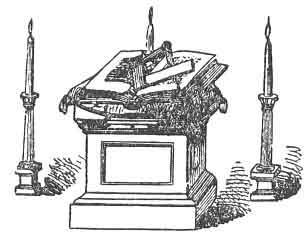by Midnight Freemason Contributor
WB Adam Thayer
In Nebraska, to obtain your individual proficiency, you have to perform roughly 80% of the ritual work from memory (the remaining 20% is “monitorial”, or able to be read from a book). You are allowed to make up to three mistakes during the recitation. If performed in a single session (which is generally not done these days), you will speak for approximately 5 ½ hours, start to finish. Very few people actually undertake the ordeal, and of those who do, most people take a year or longer to finish all three degrees and all of the lectures.
For those few who do, the work is far from over; to keep the proficiency, you’re required to perform all of the degree work and lecture work on an annual basis, in a “round table” format. The round table format is pretty much exactly how it sounds; a group of men sit around a table, each taking turns going through the lines, one after another. Instead of focusing on one role (as you normally would for degree work), you’re constantly shifting from one officer to the next, and never really know what you’ll end up doing the next time around the table.
I personally find the round table format more challenging even than the solo recitation that was required to originally obtain proficiency; with the solo recitation, you can get into a rhythm, and as long as you don’t lose your place you will be ok. In the round table, you never really find a rhythm, and you’re relying on others to perform their role correctly as well. Of course, the balance is that you’ll repeat less lines overall, and depending on the number of brothers there it may be significantly less.
Now, if your state follows a similar proficiency path (or whatever you may call it), that was probably unnecessary background. I’m sad to admit that I don’t know much about proficiency outside of Nebraska.
What I noticed this evening, however, were experiences that I bet are universal to Freemasons. I saw brothers helping each other out when they got stuck; never in a condescending manner, but solely for the joy of helping a brother in need. We would each offer a clue to the missing word or words, and if it was obvious that he was really stuck, there was someone who would step in and take over for him by silent agreement.
It wasn’t the grand gesture that we think about when we think of helping a brother in need, it was the more everyday aid and assistance that we pride ourselves on without ever bragging about.
I’m not really certain that there is a “moral” to this story, as much as a reminder of the little things that separate us from the rest of the world. We have many great moments of “big” charity work, times when many people are affected by our actions, and it’s easy to forget about how much larger of an impact these tiny moments can have.
If you haven’t ever obtained your individual proficiency, it is definitely worth pursuing. Even if it takes you a long time to get through all of your proficiency exams (hey, it took me a year and a half), you should still work toward it, as you’ll gain a deeper understanding of our rituals and their meanings. In fact, the whole reason I worked on mine was so that it would be easier for me to research other Masonic topics without having to constantly pull out my ritual book. As a nice bonus, you’ll get to see a quiet moment of Masonic charity up close and personal.
~AT
WB. Bro. Adam Thayer is the Senior Warden of Lancaster Lodge No. 54 in Lincoln (NE) and a past master of Oliver Lodge No. 38 in Seward (NE). He’s an active member in the Knights of Saint Andrew, and on occasion remembers to visit the Scottish and York Rites as well. He continues to be reappointed to the Grand Lodge of Nebraska Education Committee, and serves with fervency and zeal. He is a sub-host on The Whence Came You podcast, and may be reached at adam@wcypodcast.com. He will not help you get your whites whiter or your brights brighter, but he does enjoy conversing with brothers from around the world!


In Texas, all certificate proficiency exams are done round robin. It is challenging, but I do like the way brothers help each other out when needed.
ReplyDeleteAre we talking about proficiency exam for the officers or general membership when progressing between degrees?
ReplyDelete